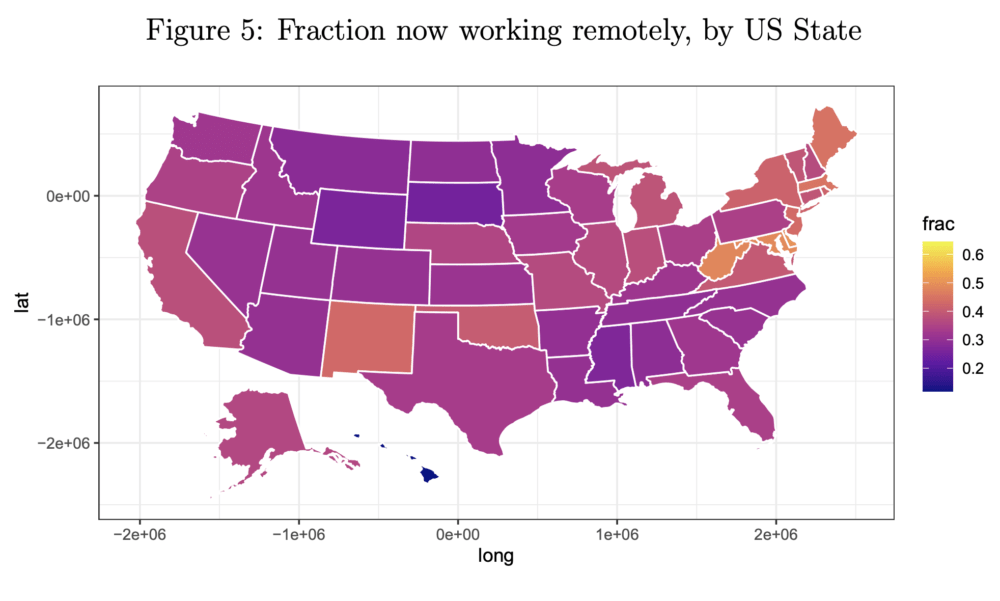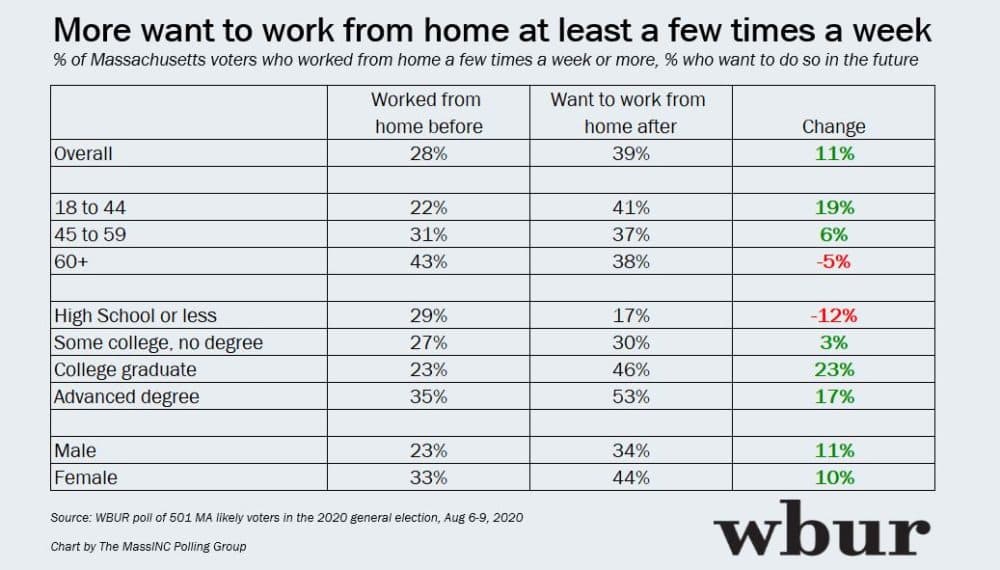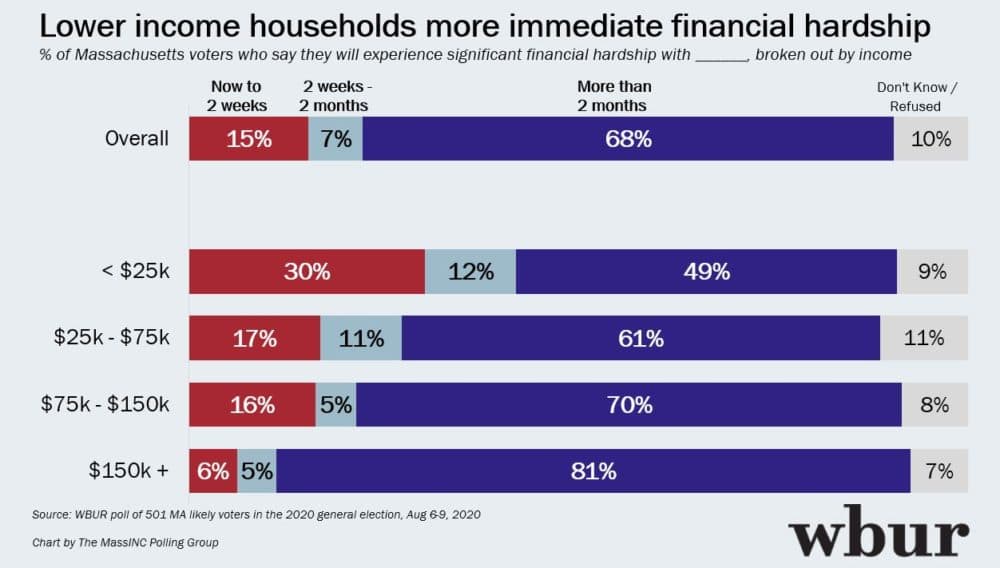Advertisement
Coronavirus Coverage
Remote Work Has Cushioned The Pandemic's Blow, But WBUR Poll Reveals Inequalities
When the whole work-from-home thing started, Kass Burrowes had concerns.
He works in marketing; his wife works in health care. Could they do those jobs in the same house, without driving each other nuts?
"That was the biggest uncertainty for both of us," said Burrowes, who lives in Waltham. "How would this work?"
Eventually, they found a routine: one of them works in the living room, while the other takes the office. The next day, they switch.
"Luckily, we were able to come out of it just fine," he said. "Unscathed."
Burrowes said he feels more productive working at home. And even after the state fully reopens from the coronavirus pandemic, he would prefer to keep working at home, at least a few days a week.
In fact, nearly 58% of people in a recent WBUR poll (topline, crosstabs) of likely Massachusetts voters said the same thing. Compare that to 28% of respondents who said they worked at home a few days per week before the pandemic. The poll, conducted by MassINC Polling Group, has a 4.4% margin of error.
Kristen Levins, who lives in Hudson and also works in marketing, is another work-from-home convert. Although she initially worried about not being able to see her team in person, the past few months have convinced her that, even when separated, they can be "100% productive."
And although the blurring of work and home life can sometimes result in working late hours, it also allows her do to things she might not have had time for before.
Advertisement
"Being able to bring my son to hockey ... or my other son to swim, it allows me to have more flexibility within the day," Levins said.
It is clear, said Erik Brynjolfsson, an economist at Stanford University, that "remote work has cushioned the blow of the pandemic by allowing a lot of people to continue to work and create value.
"But I think the more profound thing ... is this could be a harbinger of the future way people will be working," said Brynjolfsson, who co-authored a recent working paper that examines how remote work has been adopted across the country over the past several months.

And yet, among those who have been able to work from home during the pandemic, there have been "big inequities," said Steve Koczela, president of the MassINC Polling Group.
"Only about a quarter of people who said they have a high school education or less, said they worked from home during the pandemic. That number for people with advanced degrees is 83%," he said. "So there’s a huge, huge difference in the proportion of people who got a chance to try it out during the pandemic."
A deeper look at those who said they would choose to work from home at least a few days per week after offices fully reopen shows a similar divide. A little more than half of advanced degree holders and 46% of college grads said they would like to work from home, compared to just 29% percent of those who said they had completed some college, and 17% of those who said they had not gone beyond high school.
"We found a very similar pattern," said Brynjolfsson who, until recently, was a professor at MIT. "People working with data or information are much more likely to switch to working at home, and to continue working at home, whereas people in the manufacturing sector, services, are less likely to do so."
In the WBUR poll, one-third of respondents said working from home isn’t an option for them.

But if everyone who wants to work from home after the shutdown does, that would have some significant economic consequences. Consider, for instance, all the businesses that cater to the office crowd: fewer bleary-eyed workers arriving each day means fewer people lining up for a morning fix at the coffee shop near the office, no more going out to lunch nearby, grabbing drinks around the corner, or picking up dry cleaning before heading home.
"There’s just a bunch of different stuff that's not being done there, that is being done somewhere else," Koczela said.
Then, consider how a significant reduction in commuters would affect everything from roads and public transit to residential and commercial development.
While a shift away from the office may mean financial pain for some, Prithwiraj Choudhury, who studies remote-work at Harvard Business School, predicts that in the long run, more and more companies will see the advantages.
"Any company in the world wants to grow, and in the past, growth has meant increase in real estate costs, but if you’re based in Kendall Square or Silicon Valley or Tokyo or New York, that’s really, really expensive," Choudhury said. "If more and more companies become what I call 'majority-remote,' where the majority of the company is doing remote, that will be a ton of real estate savings."
Years from now, broader cultural acceptance of working from home may open the door to an even more radical idea: work from anywhere. That is, companies allowing employees to work not only at home, but also in another state or even another country. While less common, work-from-anywhere programs have been adopted to some extent by private companies such as Akamai and GitHub, and government agencies such as NASA and the U.S. Patent and Trademark Office.
Of course, in a COVID economy, it’s just nice to be working at all, especially with Massachusetts’ unemployment rate at 17.4% recently. And in WBUR’s poll, nearly one in five respondents said they are currently experiencing “significant financial hardship," or expect to be within a month.

This segment aired on August 14, 2020.
